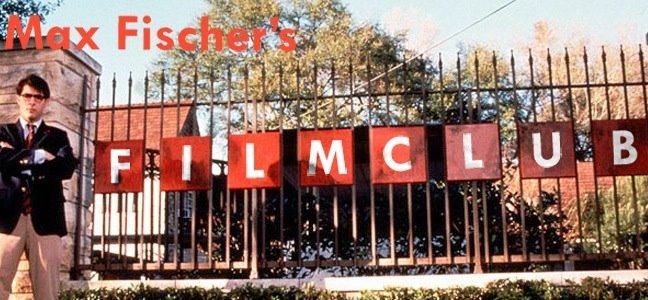 Making-of docs of some form or another usually accompany a film when it reaches DVD stage. Some are bog-standard disc filler, while others are more extensive and made by real fans of the actual the film in question, sometimes as a retrospective.
Making-of docs of some form or another usually accompany a film when it reaches DVD stage. Some are bog-standard disc filler, while others are more extensive and made by real fans of the actual the film in question, sometimes as a retrospective. There are occasionally documentaries about film and filmmaking made which deserve to be viewed as a stand-alone to the actual films themselves. Famous amongst these are the likes of Hearts of Darkness and Lost in La Mancha but the three films I’ve chosen below offer a slightly different take on this sub-genre:
Overnight
Scanning Apple Trailers this week, I came across the sequel to a film which I thought was pretty terrible, but has turned into something of a cult classic – The Boondock Saints. My first exposure to this film came in the form of a making-of documentary, titled Overnight.
It’s a rags-to-riches-back-to-rags story of director Troy Duffy and how he managed to burn all his Hollywood bridges with a truly atrocious and repulsive display of ego. On the strength of his first screenplay, Miramax’s then co-head Harvey Weinstein, went to the unprecedented length of shelling out money to buy Duffy’s local bar for him, use his (awful) band to score the film and generally garnish him with loads of moolah and praise. Believing himself to be the next Scorsese, Duffy proceeded to slate every casting choice, ranging from Kenneth Brannaugh to Keanu Reeves (ok, that’s understandable), while constantly alienating himself from the people who were vital for him in achieving his vision - all this before he’d even shot a single frame of film! The end shot of this film is very similar to that of The Pledge, this time with Duffy replacing Jack Nicholson’s character in that film, framed in a single, solitary shot outside a club, looking like he’s on the edge of sanity.
That he managed to finally make the film (without major backing) and has now produced a sequel, probably sends out mixed messages to aspiring film-makers, but this documentary is a great cautionary tale and probably the best example available about a supposed artist’s dedicated and unwaveringly belief in his own hype.
American Movie
Working as a lo-fi, comedic companion piece to Overnight and set in the kind of America represented on screen by filmmakers like the Coen Brothers, American Movie transplants the tale of skewed egos to the Midwest. It focuses on deluded but amiable loser Mark Borchardt and his attempts to make the “great American movie” while unable to keep up with the child maintenance for this three kids, hold down any regular employment or pay back all the money his once-encouraging family have lent him throughout the years. With his best friend in-tow, a dead-behind-the-eyes acid and booze casualty called Mark, we follow the making of his low-budget horror short Coven, which he hopes will eventually fund his ultimate dream project.
There is some really fantastic material here and similar to the recent documentary King of Kongs: A Fistful of Quarters, even the most accomplished script-writers out there couldn’t come up with as funny and well-defined characters and scenarios on display here. Seeing Mark’s weak, elderly cantankerous uncle attempts at providing a dubbed line of dialogue in post-production and utterly failing each time is priceless. This has been shown on BBC2 a couple of times now, during the kind of hours where only post-clubbers or insomniacs would catch it. If it’s ever on again I would thoroughly recommend everyone who has Sky+ to record this or just stay up, as the film is a real gem.
Channel Z – A Magnificent obsession
This is the tragic story of Jerry Harvey, who was the founder of Channel Z, renowned for showing a wide range of eclectic and otherwise unobtainable films, and being one of the first pay-to-view cable stations in America. Harvey was someone who ate, breathed and slept cinema and really championed films which had been missed or ignored by the mainstream.
The documentary is peppered with talking heads from the likes of contemporary indie-in spirit filmmakers like Jim Jarmush, Alexander Payne and Tarantino (surprise, surprise) who talk about the influence the station had over them.
Coming across as some kind of cineaste groupie, Harvey even managed to befriend a number of his idols, including such luminaries as Peckinpah and Altman before it all went horribly wrong, ultimately ending with him shooting his second wife before turning the gun on himself. The incident is only covered towards the end of the film and doesn’t really offer any real insight into the possible correlation of his obsession with cinema and that of his deteriorating mental health, but you can bet the two would have been connected.




No comments:
Post a Comment